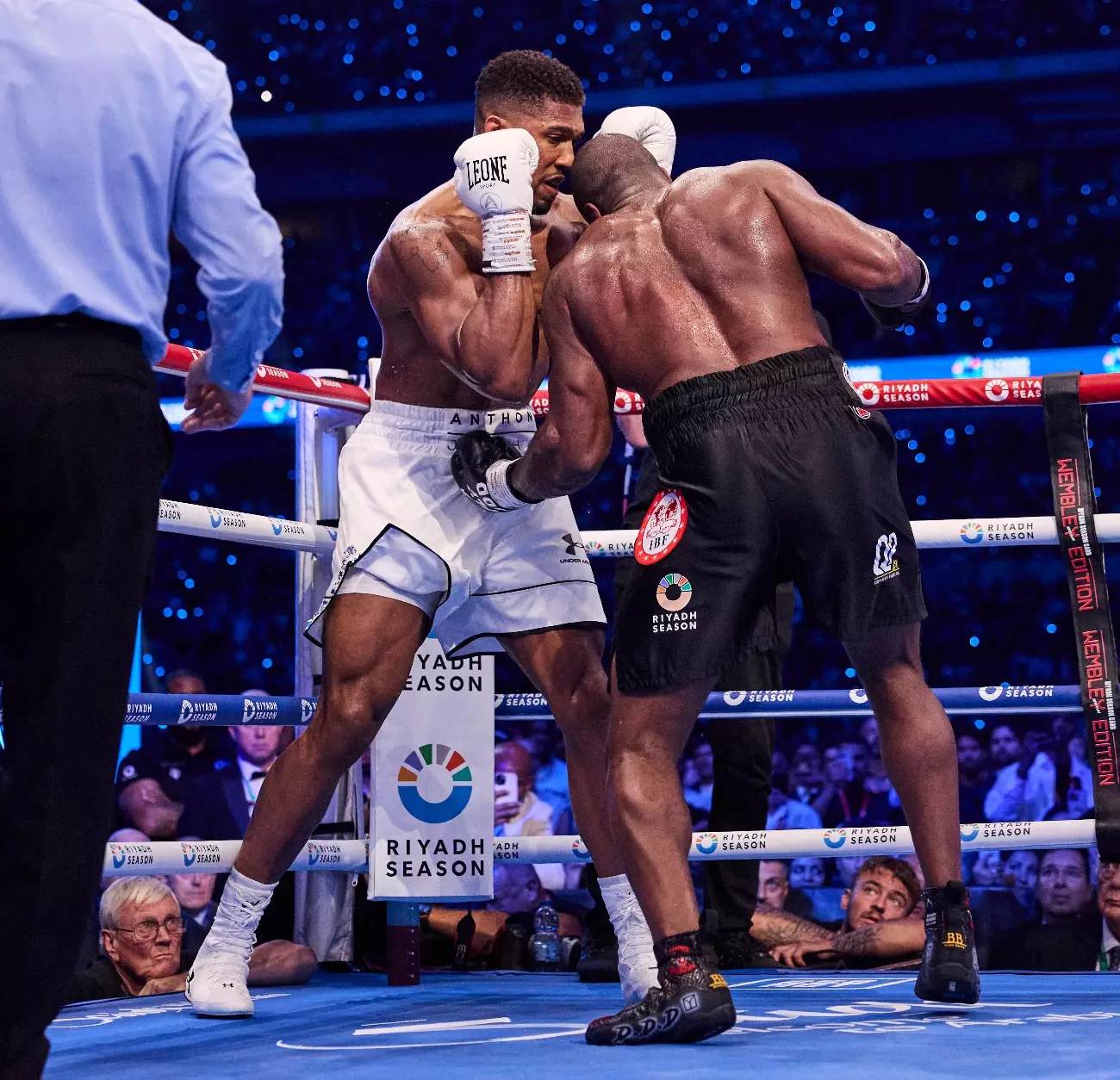BY BOXING HIT STAFF-
In the modern boxing landscape, few match-ups have garnered as much attention and scrutiny as Anthony Joshua’s recent bout against Daniel Dubois at Wembley Stadium. This clash was not merely a contest of physical prowess but also a psychological battle between two heavyweight contenders with contrasting styles and attributes. As the dust settles from the match, it becomes essential to analyze not just the fight’s outcome but also the decisions made by Joshua in the heat of the moment. The fight revealed critical flaws in Joshua’s strategy, execution, and coaching, all of which contributed to his defeat.
One of the pivotal moments in the fight occurred during the third or fourth round when Dubois landed what many observers deemed a low blow. The rule of boxing allows a fighter who has been subjected to a low blow to take a five-minute timeout for recovery. However, Joshua’s decision to forego this option and assert that he was “fine” raises questions about his judgment and situational awareness. In hindsight, taking the full five minutes could have provided Joshua with a crucial respite to gather himself and potentially alter the fight’s direction. Eddie Hearn, an influential figure in boxing and Joshua’s promoter, criticized this choice, suggesting it indicated a fundamental inexperience on Joshua’s part. Hearn emphasized the need for boxers to recognize when to take a breather, especially when in a precarious position.
The Shifts in Strategy: Miscalculated Approaches
Joshua’s tactical approach appeared flawed throughout the match. He seemed caught up in a defensive mindset rather than taking control of the fight, choosing to move around instead of engaging Dubois. This strategy not only enabled Dubois to dictate the pace but also allowed him to land punches that progressively weakened Joshua. A more aggressive approach, akin to what one would expect from a fighter of Joshua’s caliber and experience, could have countered Dubois’s onslaught. Furthermore, Joshua’s seemingly overdeveloped muscle mass contributed to his sluggishness, resulting in a surprising lack of agility. This observation casts doubt on the training methods employed by his coach, Ben Davison, who certainly must take some blame for not optimizing Joshua’s physical condition for the bout.
A Lesson in Preparation: The Role of Coaching
The role of coaching in boxing cannot be overstated. A fighter is only as good as their team behind them, and Joshua’s inability to perform at his peak level may reflect the inadequacies in his preparation leading up to the fight. Davison’s approach to training Joshua not only influenced the fighter’s fitness but also his mental readiness. It can be inferred that Davison failed to instill the necessary tactics for Joshua, particularly when facing an aggressive opponent like Dubois. This lack of strategic depth hints at a growing need for Joshua to reassess his training team and prepare for future fights with a comprehensive plan that incorporates both physical conditioning and tactical acumen.
Another critical aspect that emerged from the fight was Joshua’s mental state. The ability to recover from adversity—both physical and psychological—is paramount in boxing. Joshua’s acknowledgment of his pain after the low blow but simultaneous decision to continue showcases a potential deficiency in mental fortitude. This incident emphasizes the necessity for fighters to possess the psychological resilience to acknowledge vulnerability. A moment of clarity, even when faced with the fear of being perceived as weak, could significantly impact the outcome of not just individual fights but also a fighter’s entire career trajectory.
Anthony Joshua’s performance against Daniel Dubois served as both a revelation and a cautionary tale for heavyweight boxing. The fight demonstrated how critical experience, tactical adaptability, and mental resilience are within the ring. Joshua’s choices reflect deeper issues that extend beyond physical capability, suggesting a need for introspection on his part and potentially a reevaluation of his support system. For Joshua to reclaim his legacy as one of boxing’s elite, it is clear he must address these fundamental aspects of his preparation and execution. Ultimately, while the loss is a setback, it also serves as an essential learning moment—one that could guide him back to the pinnacle of the sport, provided he is willing to adapt and grow from this experience.


Leave a Reply